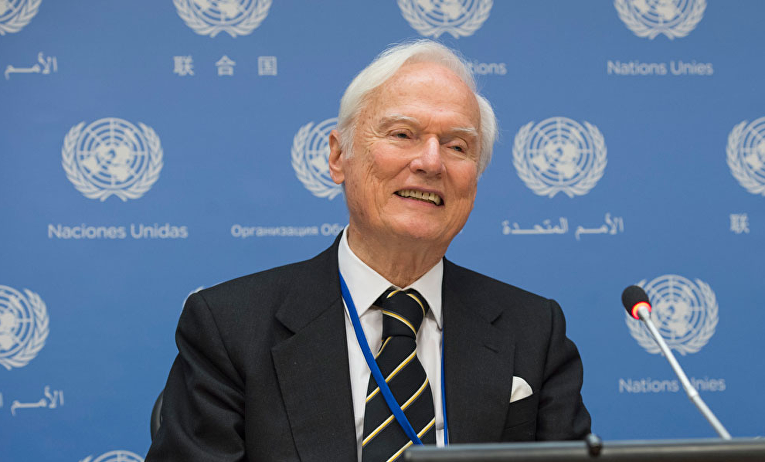MOSCOW, April 28 (RAPSI) – Sanctions against Russia fail to achieve the desired result and cause more damage to countries imposing them than the targeted country itself, Idriss Jazairy, the United Nations’ (UN) Special Rapporteur said during press-conference in Moscow on Friday.
Mr. Jazairy arrived in Russia this week as the Special Rapporteur on the negative impact of the unilateral coercive measures. He described his task as an attempt to evaluate negative impact caused by the sanctions imposed on Russia after the beginning of crisis in Ukraine back in 2014. According to the Special Rapporteur, this evaluation is highly peculiar situation because unlike other cases he has to assess the damage caused to economically developed country and not a developing one.
The Special Rapporteur believes that the damage caused to Russia by sanctions in the frame of three years reaches as high as $55 billion. These losses inconvenienced residents of Russia and hurt the least protected social groups, including children under 16 and retired persons. Mr. Jazairy noted that in 2014 Russia had to endure two economic problems simultaneously: drop in oil prices and sanctions themselves making it difficult to evaluate damage caused by just one of the factors.
According to Mr. Jazairy, Russian government took effective measures to minimize losses and to adapt the country’s economy to emergent circumstances. He noted in particular that in this case losses of countries imposing sanctions were much higher than losses of Russia itself and reached as high as $100 billion.
The Special Rapporteur brought closer attention to three key points:
• Sanctions against Russia are ineffective and fail to achieve the planned goals. Such pressure only weakens business ties between countries and causes nothing but problems in the world of economic globalization. In addition, these measures hurt, above everyone else, population and business community, not involved in the political conflict.
• Sanctions against individuals are also viewed as highly questionable by Mr. Jazairy. In his report, he plans to bring up the point on need to respect the immunity granted to elected officials and how it is important to be cautious during imposing of sanctions against individuals protected by such immunity.
• Finally, Mr. Jazairy expressed his wish to visit Crimea and Sevastopol to evaluate the state of human rights protection in those regions. He said that in order to do so he hopes that both Russian and Ukrainian authorities would be open for discussion.
Mr. Jazairy also noted that despite the existence of the European Court of Justice and the European Court of Human Rights (ECHR) it may be reasonable to bring up the possibility of establishing special body to review disputes over unilateral coercive measures.



